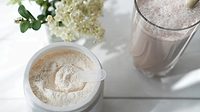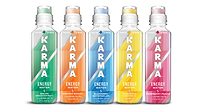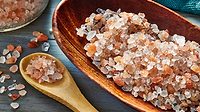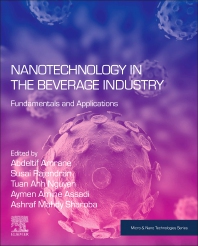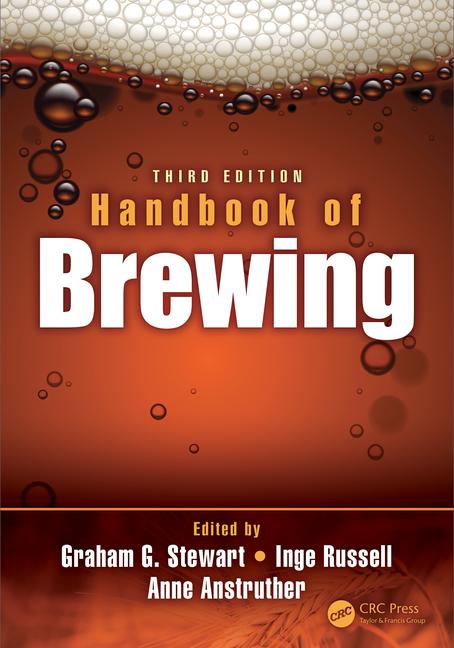Ingredient Spotlight
Beverage-makers work to deliver stress relief, relaxation benefits
Post-pandemic, consumers opt for beverages that aid in well-being

Image courtesy of Getty Images
In their 2009 song “Weightless,” alternative rock band All Time Low sings about feeling carefree and worry-free. “I wanna feel reckless / I wanna live it up, just because / I wanna feel weightless / ‘Cause that would be enough,” the lead vocals sings in the second verse. The song is all about living life to the fullest without any stress or anxiety.
The theme of the song rings true today as consumers turn to beverages for stress relief and relaxation in a post-pandemic world.
Linda May-Zhang, Ph.D., vice president of science and innovation at Blue California, Rancho Santa Margarita, CA, says that the pandemic has left a lasting impact on the stress and anxiety levels of consumers.
“The return to day-to-day life has reintroduced various stressors, such as workload pressures, financial concerns and social reintegration challenges,” she explains. “Additionally, lingering health uncertainties and fear of potential future disruptions continue to contribute to heightened stress and anxiety among consumers.”
Aside from post-pandemic adjustments, May-Zhang shares that consumers face a multitude of stressors: socio-economic disparities, environmental concerns, inflation, the rise in housing costs and personal relationships.
“Furthermore, the influence of digital media, constant connectivity and information overload exacerbates stress levels for many individuals,” she adds.
Dr. Michael Crabtree, director of scientific affairs at Ham Lake, MN-based Bioenergy Life Science, Inc., shares similar thoughts.
“Many people feel stressed and anxious about their attempts to readjust to pre-pandemic norms,” he says. “They are challenged with ‘re-entry anxiety’ as they transition back to office life, in-person socializing and a faster-paced lifestyle. As a result, there is greater need for stress management and relaxation options, with a preference toward natural alternatives.”
Crabtree notes that consumers are more likely to consistently choose products that are practical and simple.
He points to RiaGev, a patented synergistic nutritional solution of bioenergy ribose and niacinamide. Crabtree says that it helps the body manage stress, boost energy levels and maintain balance.
“RiaGev contributes to ATP production, which is essential for cellular energy, and it is vital for metabolism and DNA repair,” he explains. “By replenishing energy diminished by stress, it promotes relaxation and enhances one’s ability to handle daily pressures.”
Crabtree adds that incorporating RiaGev is a proactive and holistic approach to post-pandemic stress management.
“RiaGev can be used as a standalone ingredient or easily incorporated into functional foods, beverages and supplements, simplifying its integration into daily routines and increasing the likelihood of consumers experiencing long-term relief,” he explains.
Similarly, Blue California’s May-Zhang expresses that food and beverages are a convenient and accessible avenue for consumers to incorporate stress relief and relaxation into their daily routines.
“Formulations enriched with functional ingredients known for their calming properties can help promote relaxation and alleviate stress,” she says. “By carefully crafting products with ingredients scientifically proven to relieve stress, we can offer consumers a holistic approach to managing stress through their dietary choices.”
Nate Chesher, marketing director for DeWitt, MI-based Cherry Marketing Institute (CMI), notes that the “sleep economy,” which includes everything from mattresses to wearable devices, is booming. According to Statista’s report titled “Size of the sleep economy worldwide from 2019 to 2024,” the sleep economy is predicted to reach a record high of $585 billion for 2024. Chesher points out the connection between stress and sleep, which has become apparent to consumers.
“Consumers are looking at proactive approaches to mitigate and manage stress and sleep,” he says. “Because of this, product development teams are seeking ingredients for innovations to help consumers achieve a better night’s rest. From sleep-friendly ice cream to rest-and-recover sips to calming beverages, innovations to boost relaxation are cropping up on more and more grocery shelves — many of which contain tart cherries, which naturally include melatonin.”
Chesher feels that tart cherries are trending because of the nutrition they provide, and shares that Montmorency tart cherries are a super fruit that might help improve sleep, aid in exercise recovery, reduce inflammation, ease arthritis symptoms, improve gut health and promote heart health.
Supporting stress relief and relaxation
There are many ways that food and beverages can help consumers employ relaxation and stress relief, suppliers note.
Bioenergy Life Science’s Crabtree suggests that consumers are more likely to consistently choose something that is practical and simple, and they need to experience the benefits or else their brand loyalty will not be sustainable.
“Foods and beverages containing bioactive ingredients, such as RiaGev, are obvious alternatives,” he says.
Crabtree goes on to list the numerous advantages of such ingredients:
- Fortified consumables are convenient, simplifying the intake of D-ribose and niacinamide, eliminating the need for additional supplements.
- Bioactive ingredients may have direct health advantages. Because RiaGev is instrumental in ATP synthesis, it helps sustain energy and combat fatigue linked to stress.
- Niacinamide supports nervous system functions and psychological health, which could alleviate anxiety and enhance mood.
- By fighting fatigue and supporting cellular health, RiaGev can lead to better sleep and quicker recovery from stress, facilitating relaxation.
- Fortification aligns with a comprehensive health approach, emphasizing the interconnectedness of physical, emotional and mental health, and recognizing how our diet affects our stress levels and coping mechanisms.
Blue California’s May-Zhang explains that L-theanine is a prominent ingredient recognized for its relaxation-promoting effects. L-theanine, an amino acid predominantly found in tea leaves, has been extensively studied for its ability to induce relaxation without sedation, she notes. The expert also shares that L-theanine promotes a state of calmness and mental clarity.
“Blue California’s L-TeaActive L-theanine offers a distinguished profile in the realm of relaxation-promoting ingredients, standing out in the dietary supplement space,” May-Zhang states. “With its FDA-notified GRAS safety designation, consumers can trust in its safety for consumption. L-TeaActive L-theanine was also clinically shown to reduce stress and salivary cortisol when incorporated in a functional beverage.”
She expresses that L-TeaActive L-theanine is water-soluble, ensuring bioavailability and easy integration into various formulations. It effectively mitigates stress and promotes relaxation, May-Zhang adds, offering consumers a nature-based solution for achieving emotional well-being.
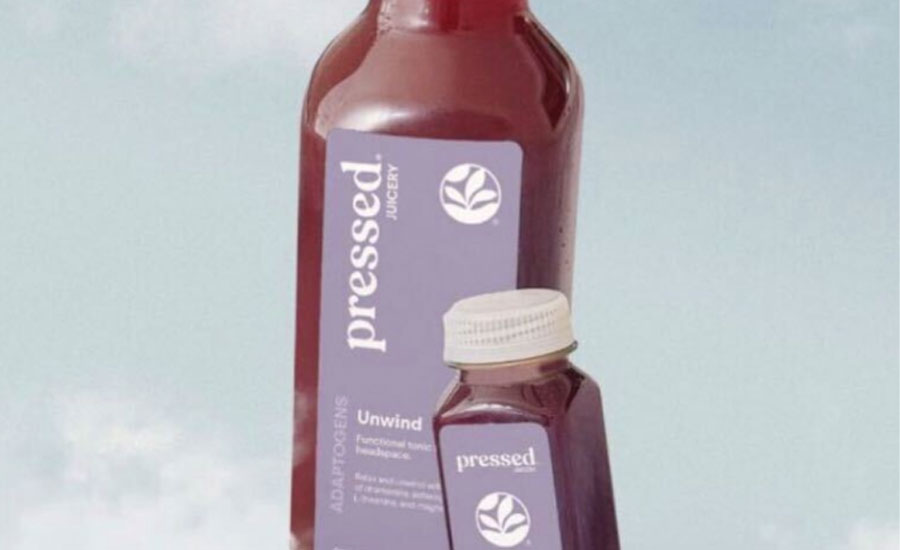
Amit Sinha, senior product strategy manager of functionality optimized nutrients, premix and bioactives at Glanbia Nutritionals, Chicago, says that ingredients like ashwagandha, valerian root, melatonin, magnesium and, like May-Zhang shared, L-theanine can promote relaxation.
“Each ingredient supports relaxation in a different manner,” he says. “Ashwagandha typically is promoted for stress relief, while valerian root and melatonin may be used for better sleep quality, while magnesium and L-theanine are used to regulate neurotransmitters, which can provide a sense of calm.”
CMI’s Chesher shares that tart cherries are an ingredient that is increasingly of interest to product development teams, especially when it comes to formulations designed for health benefits.
“Tart cherries are one of the few natural food sources of melatonin, the sleep hormone that regulates the body’s circadian rhythm and sleep-wake cycle,” he says. “Preliminary studies on tart cherries have explored the impact on the duration and quality of sleep, insomnia and sleep efficiency. In one study, adults who drank Montmorency tart cherry juice slept about 40 minutes longer, on average, and had up to 6% increase in sleep efficiency (that ratio of time spent asleep to the amount of time in bed).”
Challenges and opportunities
As for the opportunities within the beverage market to employ relaxation formulations, Glanbia’s Sinha points to the return to “normal” post-pandemic. He says the opportunity to provide relaxation formulas is high as consumers want to reduce cortisol levels and gain a deeper quality of life.
“Relaxation beverages provide a convenient way to take a few minutes for yourself to unwind; the right positioning of these products will be key in engaging consumers,” Sinha notes.
He states that challenges include showing the benefit of these products.
“Instant gratification is what consumers are used to today, but these products take time to deliver results,” Sinha says. “Also, the messaging of the product is important, as consumers have multiple choices, so why they should pick one product over another is a decision-driver, along with price.”
Bioenergy Life Science’s Crabtree also feels that opportunity lies in the label. He says that consumers must learn to look for a branded ingredient on the label, which becomes a trusted shortcut and purchase driver.
“As with any category, the challenges are the education and marketing required to bring these products to the forefront, and differentiate them from the competition,” Crabtree shares. “Some of the most essential differentiators for gaining trust, and therefore market share, include scientifically proven efficacy, safety and ease of use.”
Crabtree says that consumers must clearly understand the advantages.
With any product, it is important for consumers to be educated about what they are buying.
Amit Sinha, senior product strategy manager of functionality optimized nutrients, premix and bioactives at Glanbia Nutritionals, says that education surrounding the benefits of stress relief and relaxation products is vital
“Education regarding the benefits of ashwagandha and other similar ingredients is critical for the products to be successful,” he states. “Most consumers will not be going to clinical studies to look up the efficacy of the ingredient, but they will look at the packaging, so the right messaging is critical — and along with a way to learn more about the product if further invested via QR codes on the packaging, for example.”
Dr. Michael Crabtree, director of scientific affairs for Bioenergy Life Science, Inc., also stresses the importance of education, especially surrounding the ingredient RiaGev. RiaGev is a patented synergistic nutritional solution of bioenergy ribose and niacinamide, which can help the body manage stress, boost energy levels and maintain balance.
“Educating consumers about RiaGev’s health-promoting benefits is essential for informed decision-making and stronger brand loyalty,” he says. “Consumer education should focus on how RiaGev supports energy production and stress release, and equip consumers with the knowledge to choose products that align with their health goals, dietary needs and personal values.”
Crabtree notes that it is essential for brands to empower consumers with clear, evidence-backed information by using methods like product labeling, marketing materials, informational websites and social media campaigns.
“This will foster a deeper trust in the brand and its offerings,” he adds.
Similarly, Linda May-Zhang, vice president of science and innovation at Blue California, expresses that effective consumer education is crucial. Like Crabtree, she feels that education helps form consumer trust in manufacturers.
“Providing clear, evidence-based information regarding the mechanisms of action, recommended dosages and potential synergies with other ingredients can empower consumers to make informed choices,” she explains. “Moreover, transparent labeling and educational campaigns can foster trust and credibility in the marketplace.”
CMI’s Chesher highlights consumers’ growing interest in beverages that feature tart cherries.
“As today’s food and beverage trends evolve, U.S.-grown tart cherries are popping up in more innovations as consumers increasingly value the unique, sweet-tart flavor and nutrition benefits of this super fruit,” Chesher states. “Tart cherries are a sought-after ingredient in a wide range of nutritious beverages for today’s health-conscious consumer.”
He notes the viral “Sleepy Girl Mocktail,” a trend that has taken TikTok by storm. Consumers combine tart cherry juice, soda and magnesium powder to make a relaxing bedtime beverage, Chesher explains.
“Product developers can tap into this trend by formulating sleep, relaxation and calming beverages with tart cherries,” he suggests. “Montmorency tart cherries are harvested in the summer and are quickly frozen to maximize their quintessential flavor and preserve their bright red color.”
Chesher says that the assortment of tart cherry products assures “a seamless fit into any manufacturing environment,” including wellness shots, frozen smoothies, dairy-based beverages and juice blends.
Highlighting the importance of science-backed products is Blue California’s May-Zhang.
“With a steadfast commitment to scientific integrity and consumer-centric innovation, the future holds immense potential for advancing relaxation and stress relief formulations within the beverage industry,” says Blue California’s May-Zhang. “Despite the promising opportunities, challenges persist in the development and marketing of relaxation and stress relief formulations. Regulatory considerations, including ingredient safety and labeling requirements, pose significant hurdles.”
She notes that consistent efficacy and maintaining product integrity throughout the formulation and manufacturing processes demand rigorous quality control measures.
“Furthermore, effectively differentiating products in a crowded marketplace and overcoming consumer skepticism toward novel ingredients necessitate strategic marketing and communication strategies,” May-Zhang concludes.
Looking for a reprint of this article?
From high-res PDFs to custom plaques, order your copy today!





